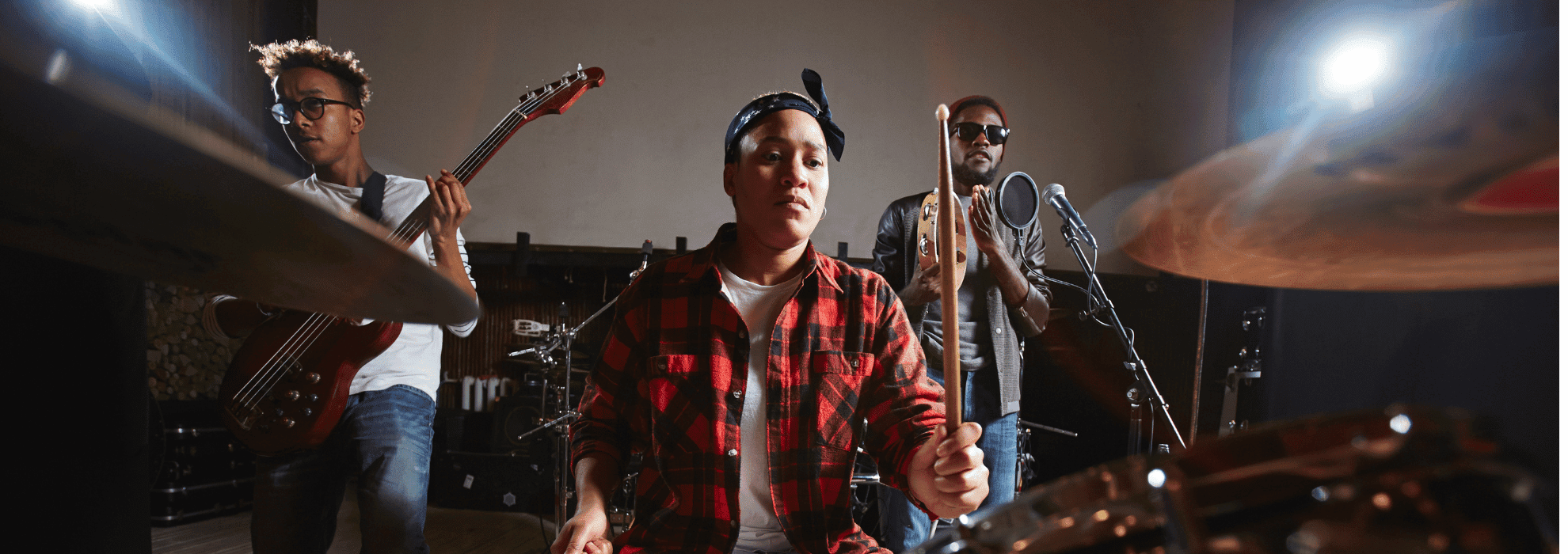10 Tips to Overcome Stage Fright!!


Performance is such an essential part of music; however, for some people, it can be the most frightening experience. We’ve got some good news for you; you’re not alone. Stage fright is very common, and we’ve got some practical tips for you (and your students) to help build confidence in performance.
Preparing before a performance is vital in fighting your stage fright. Rehearse and rehearse and rehearse until you can play your piece in your sleep! Once you know your piece inside-out, you’ll be much more confident that you can perform it.
To help reduce your anxiety, you can do a mental rehearsal. Before stepping onto the stage, close your eyes and visualise yourself performing flawlessly. Imagine the applause and the positive feedback from the audience. This technique can help to boost your confidence and calm your nerves.

Some controlled breathing techniques may be helpful to regulate your heart rate and further reduce any anxiety you may have. Try some deep breathing exercises before walking on stage. Inhale slowly for a count of four, hold for four, and exhale for four. Repeat this process several times to calm your nerves and focus your mind.
In order to reduce tension and anxiety, use progressive muscle relaxation, tensing and releasing different muscle groups; start with your toes and work up to your head, consciously relaxing each muscle group.
To get comfortable with performing, practice in front of friends, family, or a small and supportive audience. Gradually increase the size of your audience as you become more confident. The more you perform, the easier it becomes to manage stage fright.

Accept that some level of nervousness is normal and even beneficial. Nerves are your body’s way of getting ready for a challenge. Instead of fighting it, channel that nervous energy into your performance.
During your performance, concentrate on the music rather than your fear. Lose yourself in the melody and the emotions you want to convey. Remember why you love to perform in the first place.
Replace any negative emotions you might be having with some positive affirmations. Instead of thinking, “I can’t do this,” tell yourself, “I’ve prepared well, and I can do this”. Talking to yourself in a positive way can change your mindset.

Not every performance will go perfectly, but every performance is an opportunity for your musical skills to grow. Bit by bit, you’ll become more resilient after each performance, and you’ll get better equipped to handle stage fright.
If stage fright is severely impacting your ability to perform, consider seeking help from a therapist or performance coach. Professionals can provide more specialised techniques to conquer anxiety.
Stage fright doesn’t have to hold you back. The audience is rooting for you!
What every artist wants is to give a first-rate performance while shining with confidence and then receive electrifying applause! Continue reading for strategies that musicians…
Music has been a timeless language of emotions, a universal bond that brings people together. And now, scientific research is revealing a stunning revelation: learning…
Collage by Louisiana Mei Gelpi
Please fill out the form below and we will get back to you as soon as possible.
Can’t remember your password? Click here.
